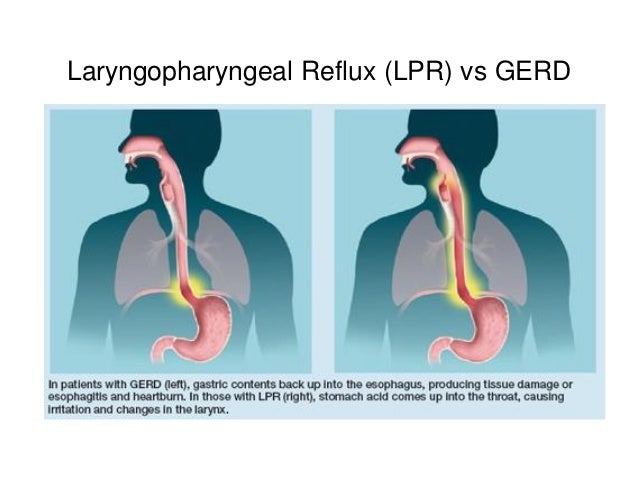When acid repeatedly “refluxes” from the stomach into the esophagus alone, it is known as gastroesophageal reflux disease (gerd) however, if the stomach acid travels up the esophagus and spills into the throat or voice box (called the pharynx/larynx), it is known as laryngopharyngeal reflux (lpr). Acid reflux vs lpr. Laryngopharyngeal reflux (lpr) protocol! c kwang sung, md, ms lpr is the retrograde (backward) movement of stomach enzymes (pepsin) and acid into the lower throat region lpr patients are usually unaware of lpr and, unlike gastroesophageal reflux disease (gerd) patients, do not usually complain of heartburn (only 35% do complain).
acid reflux vs lpr
Laryngopharyngeal reflux (lpr) is the retrograde flow of gastric contents into the larynx, oropharynx and/or the nasopharynx lpr causes respiratory symptoms such as cough and wheezing and is often associated with head and neck complaints such as dysphonia, globus pharyngis, and dysphagia lpr may play a role in other diseases, such as sinusitis, otitis media, and rhinitis, and can be a. Lpr has the name “silent reflux” due to not necessarily triggering the usual symptoms of acid reflux, such as heartburn.however, silent reflux can lead to hoarseness, frequent throat-clearing. Key difference – gerd vs acid reflux acid reflux and gerd (gastro esophageal reflux disease) are two related conditions. acid reflux is the backflow of the gastric acids into the esophagus.when this condition progresses into a more advanced stage where there is a significant level of gastric acid reflux into the esophagus that condition is identified as gerd..

